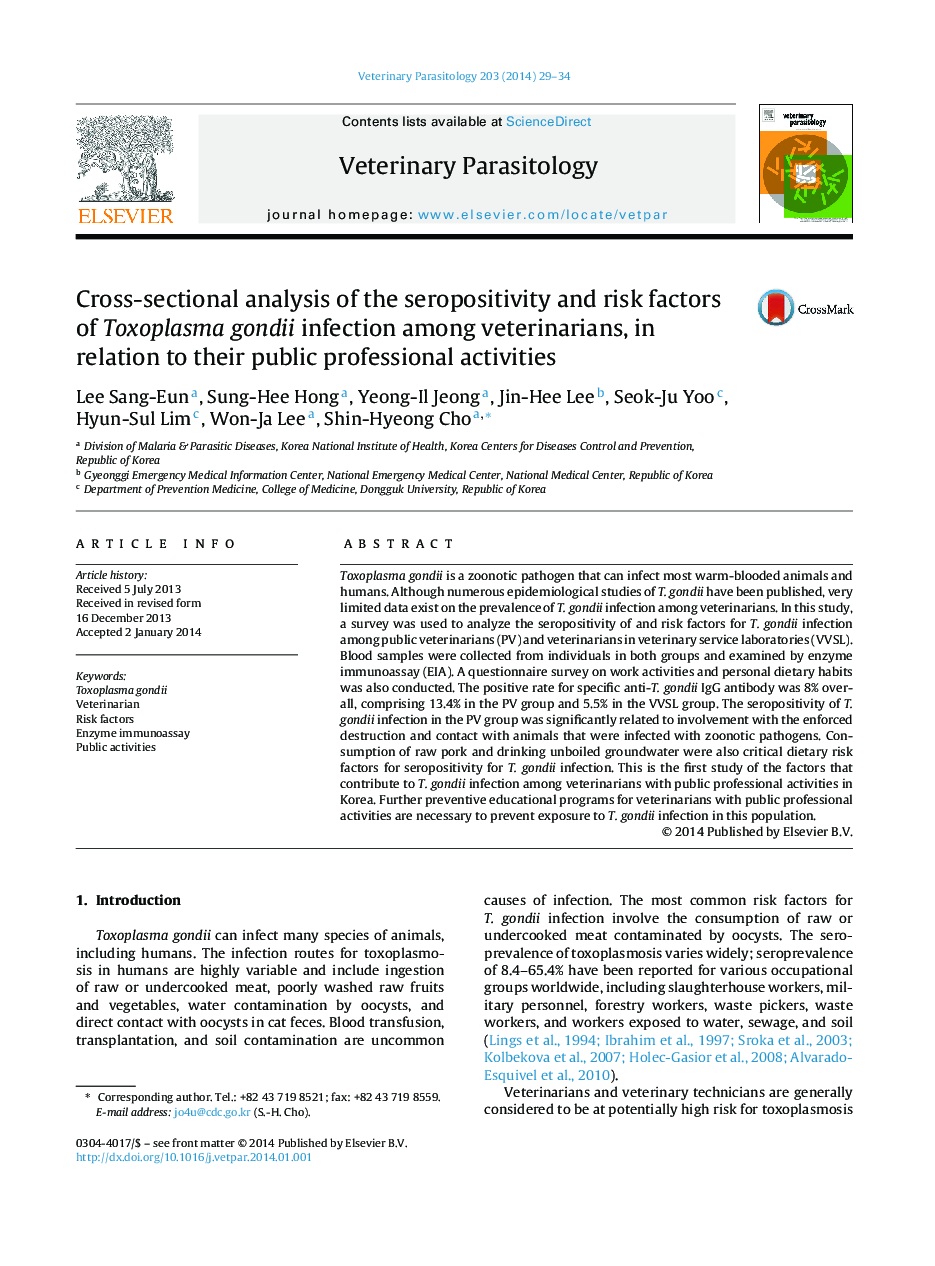| Article ID | Journal | Published Year | Pages | File Type |
|---|---|---|---|---|
| 5803322 | Veterinary Parasitology | 2014 | 6 Pages |
Toxoplasma gondii is a zoonotic pathogen that can infect most warm-blooded animals and humans. Although numerous epidemiological studies of T. gondii have been published, very limited data exist on the prevalence of T. gondii infection among veterinarians. In this study, a survey was used to analyze the seropositivity of and risk factors for T. gondii infection among public veterinarians (PV) and veterinarians in veterinary service laboratories (VVSL). Blood samples were collected from individuals in both groups and examined by enzyme immunoassay (EIA). A questionnaire survey on work activities and personal dietary habits was also conducted. The positive rate for specific anti-T. gondii IgG antibody was 8% overall, comprising 13.4% in the PV group and 5.5% in the VVSL group. The seropositivity of T. gondii infection in the PV group was significantly related to involvement with the enforced destruction and contact with animals that were infected with zoonotic pathogens. Consumption of raw pork and drinking unboiled groundwater were also critical dietary risk factors for seropositivity for T. gondii infection. This is the first study of the factors that contribute to T. gondii infection among veterinarians with public professional activities in Korea. Further preventive educational programs for veterinarians with public professional activities are necessary to prevent exposure to T. gondii infection in this population.
